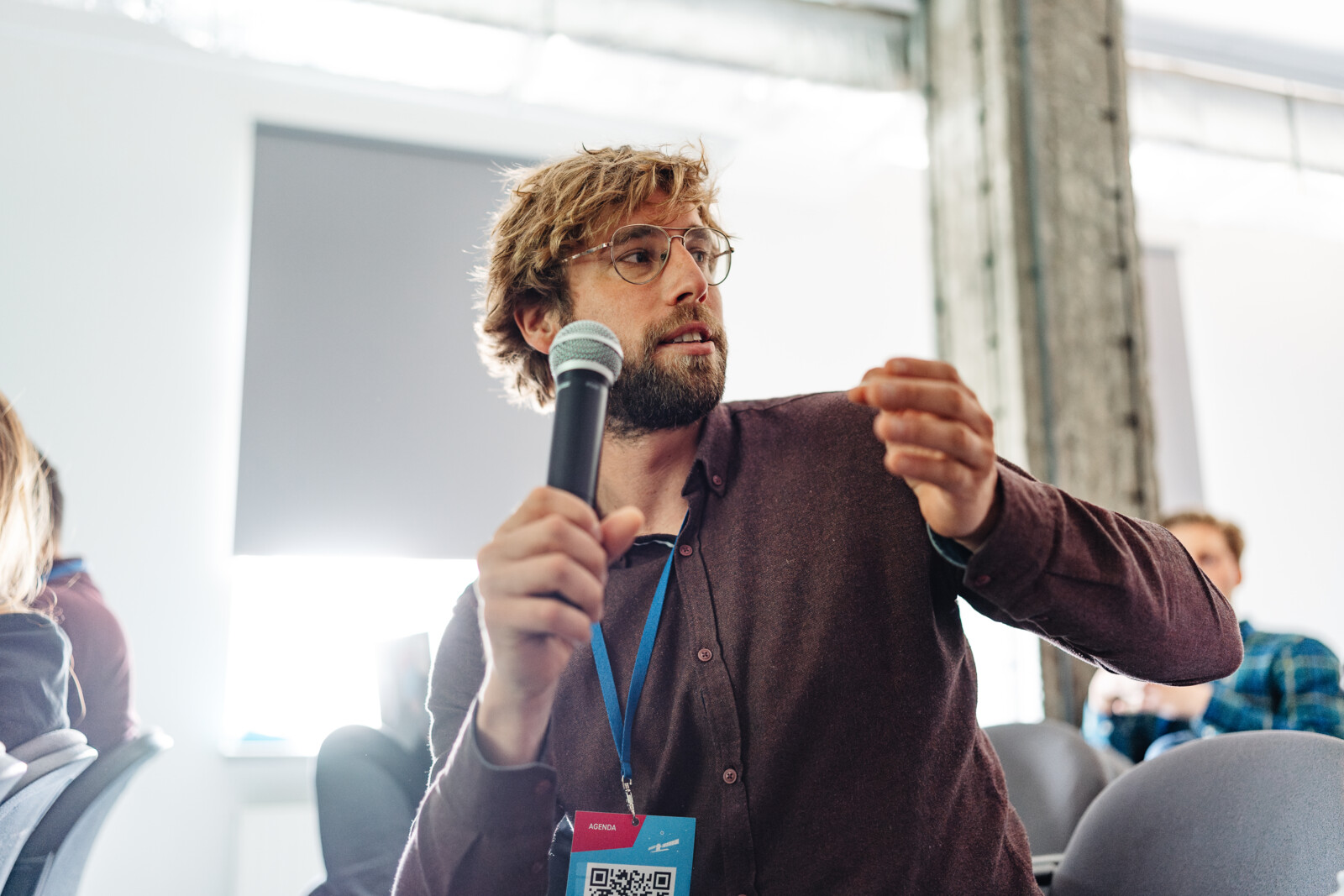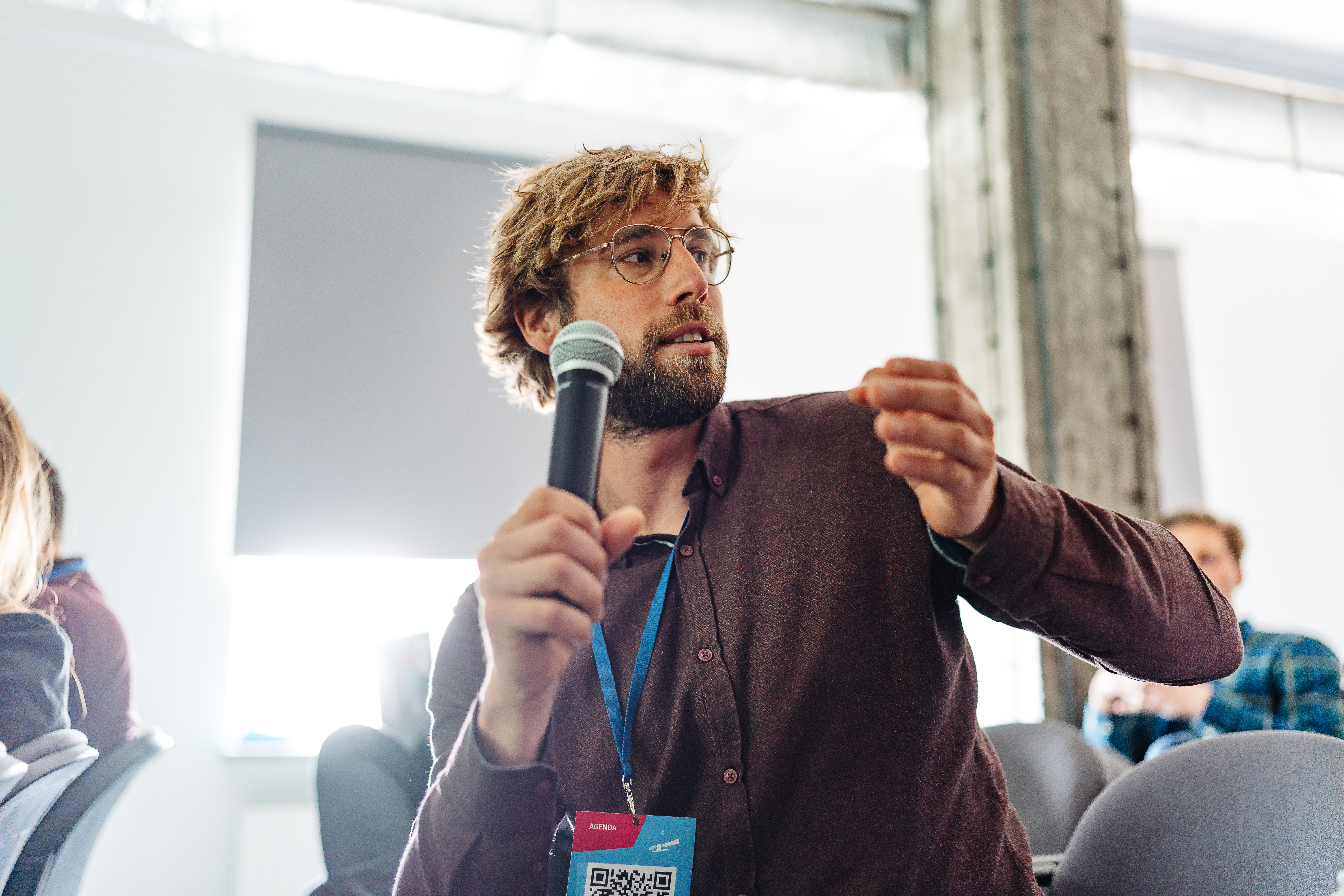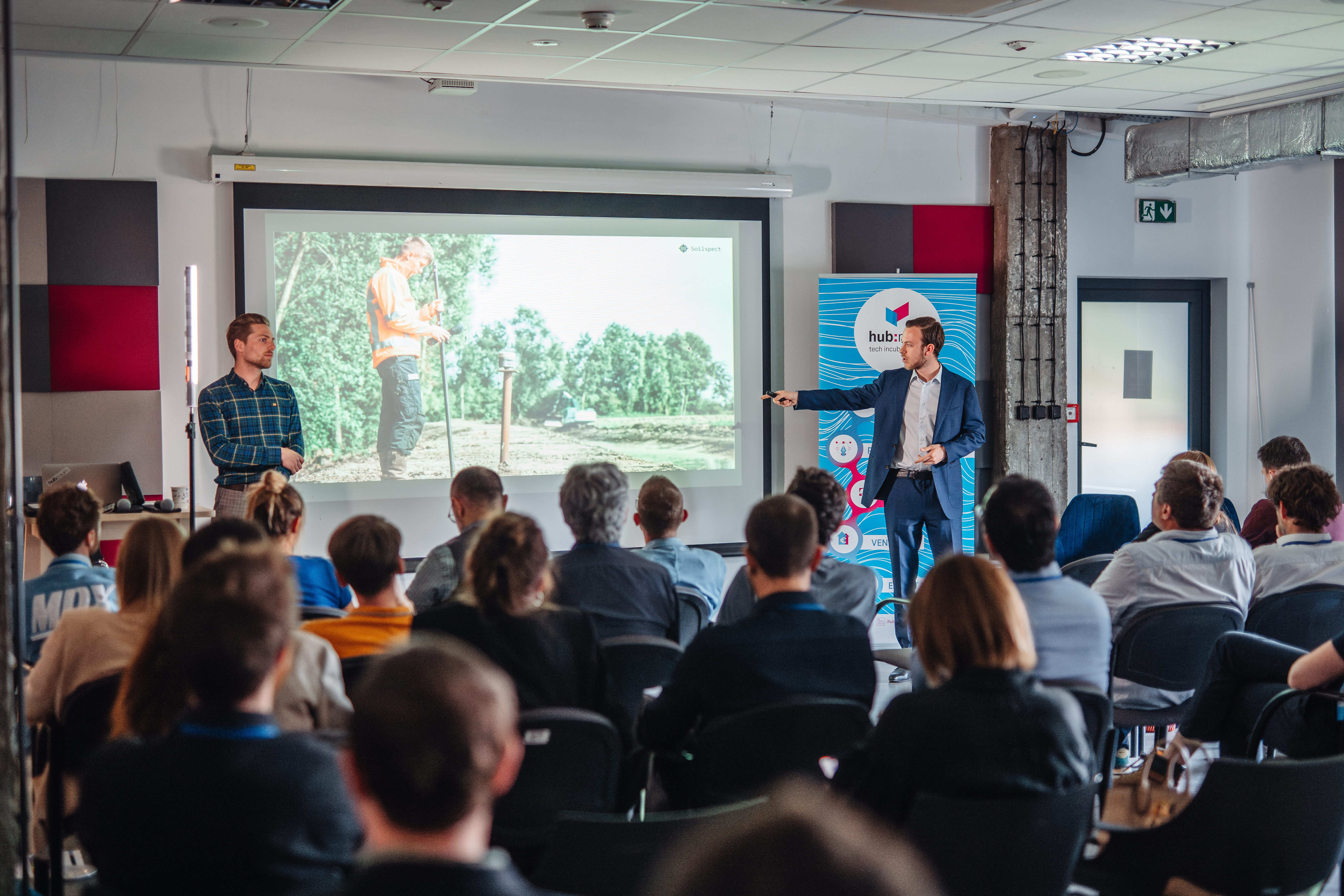On May 30, hubraum launched an out-of-this-world opportunity: a joint prototyping program combining IoT with Earth Observation data. Its name? The IoT Space Challenge, brought to you by us in collaboration with the European Space Agency. Ten different startups came to our Krakow campus to compete for just six places on the program.
Meet the six startups we’ve selected for our space program

We have lift off!: Launching the IoT Space Challenge

On the first day, we began with an intro which asked the audience to identify core values which they associate with hubraum (“Innovation!” as one audience member called out). Both Cezary from our investment team and Piera di Vito, a representative from the European Space Agency took to the stage to outline the sort of initiatives they’re looking to invest in. For Cezary, he was looking for startups working on projects which had an obvious relevance for Deutsche Telekom, whereas for Piera, aspects like the duration of the project and how long it would take to become profitable were more important (as she put it, “If you need ten years to realize your project, you’re not for us — we’re interested in initiatives taking place over one, two, three years”).
This was followed by two tech-heavy deep dives. Experts like Valentijn Venus from the Ramani Institute cooperating with ESA and Afzal Mangal from IoT Creators demonstrated their know-how: Valentijn showed participants how Earth Observation and IoT could be combined, a representative from CloudFerro showed them how to navigate the Copernicus Data Space Ecosystem, Afzal ran through Deutsche Telekom’s IoT hardware and platform while Frank Zeppenfeldt explained satellite IoT.
The entire group went for a networking dinner, beers and cocktails afterwards. Drinks were drunk, but not too many — after all, the next day would be the make or break moment for each startup, when they delivered their pitch before our panel of experts.

Our second day started with a series of fascinating talks. Deutsche Telekom’s Benjamin Baumgarten asked whether ‘Is there enough space on earth?’ Piotr Wesolowski from Deutsche Telekom explained business opportunities for smaller companies at the telecommunications giant, while the European Space Agency’s Anna Burzykowska talked about Earth Observations and how a person might seize the opportunities characteristic to this decade. ESA’s Stephen George explained why IoT is so crucial for Earth Observation. Then it was time for the pitches. The same rules applied for each startup: we held up an analogue clock and gave each company five minutes to explain their product or service and run through a short presentation. Then there was time to field questions to dispel any ambiguity about the service.
The pitches were dizzyingly different from one another — Buzzup, a startup from Italy, makes precision pollination possible, monitoring honey bees, bumble bees and mason bees alike; while a representative from Poland’s Astrotectonic argued that it was possible with just seven sensors to monitor a city the size of Rome to predict earthquakes. But they all had two aspects in common: the obvious passion with which each speaker discussed their innovation with and a high level of technological competence.

Then, each startup was given the chance to liaise with nine distinct teams of mentors. This would enable our mentors to decide who to mentor and was a second part of the selection process — we’re not just looking for great ideas, we’re looking for great chemistry between the people working on them.
Finally, it was the moment the startups had been waiting for. The panel of experts announced the startups they’d selected to enrol on our first ever program in collaboration with the European Space Agency. They were:
• Soilspect: settlement measuring system
• World from Space: EO data interpretation and distribution
• PlanetWatch: localised air quality data
• Skyfora: hurricane and weather condition forecasting
• eOdyn: oceanographic data solution
• Astrotectonic: Earthquake AI prediction system
The mentors for each startup were also announced.
There’s lots more to come. Over the next five months, these startups will develop their ideas along with our mentors on our program. Midway through the challange, there will be a meeting at the European Space Agency’s premises to check on their progress, and there’ll also be a big final: a demo day in Paris.

